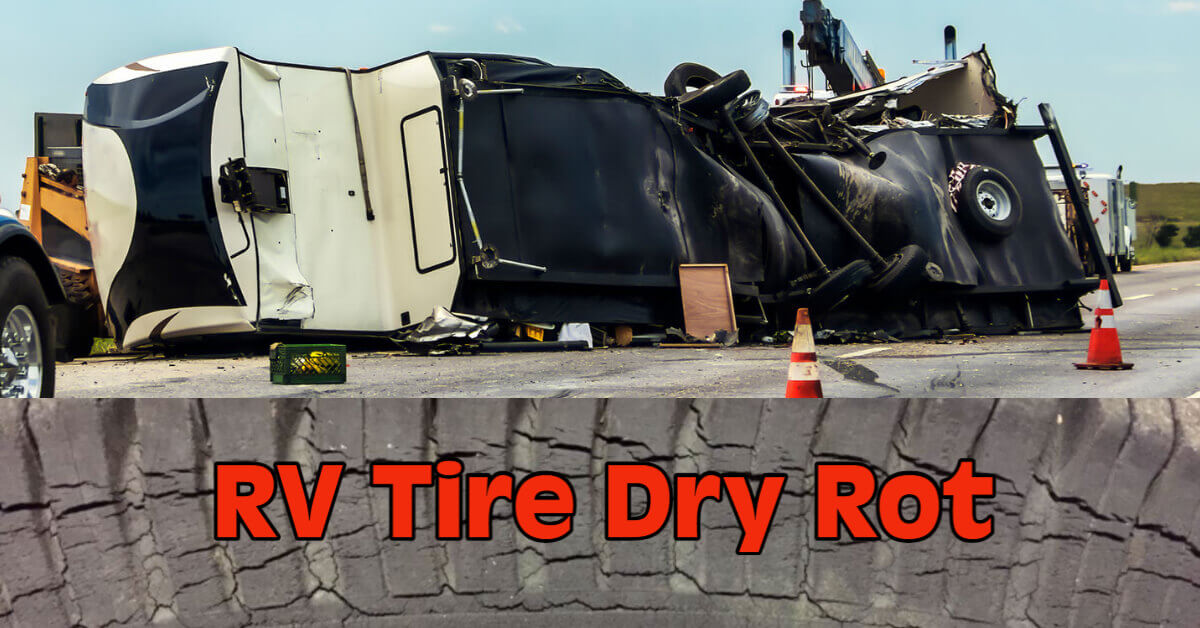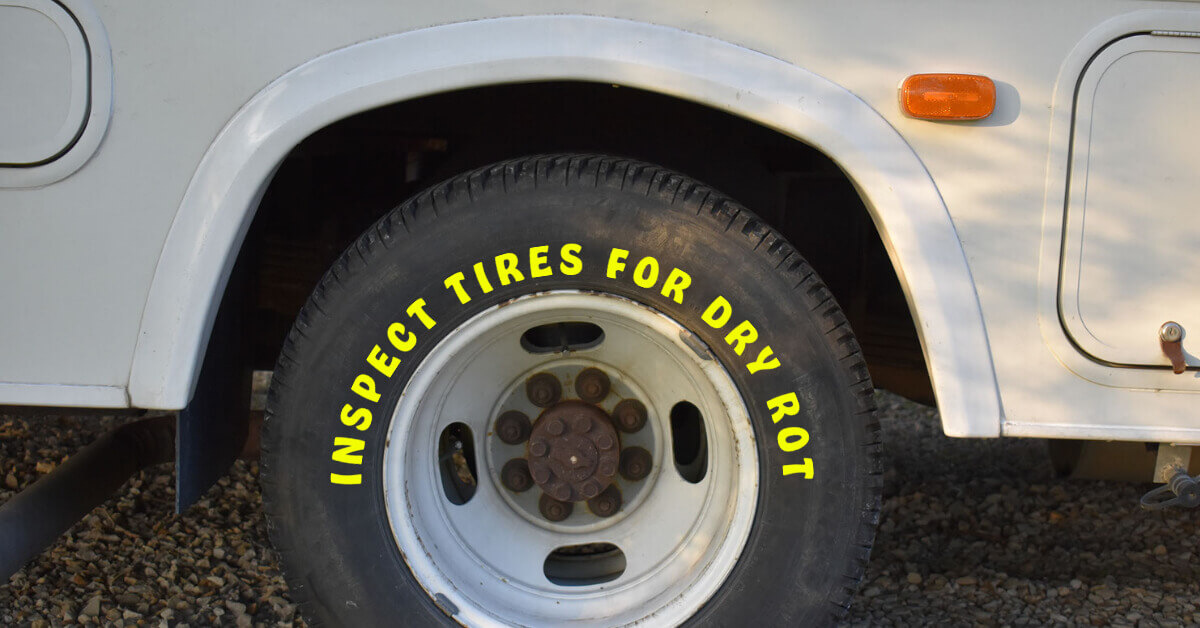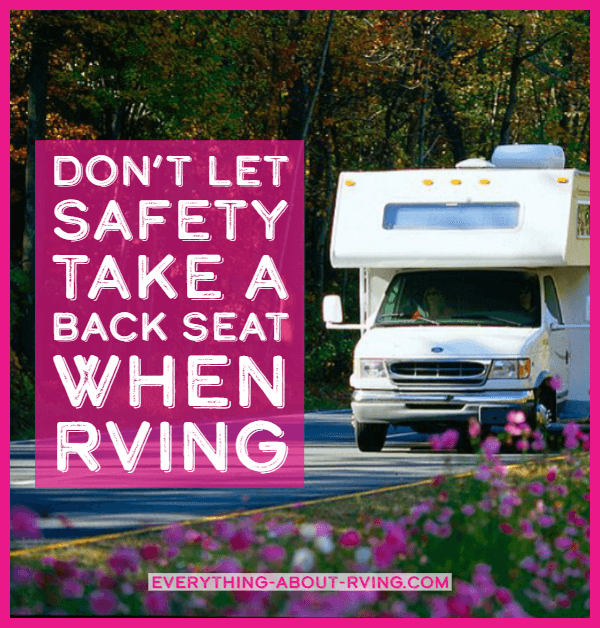- Home Page
- RVing Tips & Tricks
- RV Tire Dry Rot
RV Tire Dry Rot:
The Silent Killer on the Road and How to Stop It
This silent killer can put you and your passengers at risk. In this article, we will discuss what RV tire dry rot is, what causes it, and how to prevent it.
If you are an RV owner, then you know how important your tires are to the safety of your RV. Unfortunately, one serious issue that many RV owners face is tire dry rot. This silent killer on the road can cause severe damage to your RV and put you and your passengers at risk. In this article, we will discuss what RV tire dry rot is, what causes it, and how to prevent it.
Remember, whether your RV is a Motorhome, 5th Wheel, Travel Trailer or a Tent Trailer, the tires are subject to becoming dry rotted.
Table of Contents
1. What is RV Tire Dry Rot?
RV tire dry rot is when the rubber on the tire starts to degrade due to exposure to the elements. This causes cracks to appear on the tire, which can cause a blowout. Dry rot can occur on any part of the tire, but it is most commonly located on the tire's sidewall.
2. What Causes RV Tire Dry Rot?
RV tire dry rot is caused by a combination of factors, including extended exposure to UV rays from the sun, air exposure, and heat exposure. These factors can cause the rubber in the tire to break down over time, leading to dry rot.
3. Signs of RV Tire Dry Rot
You can inspect your RV tires for many signs to determine if they are experiencing dry rot. These signs include:
- Cracks in the sidewall of the tire
- Bulges or blisters on the tire
- The tread of the tire is separating from the rest of the tire
- The tire has a rough or uneven surface
If you notice any of these signs, having your tires inspected by a professional is very important.
4. The Dangers of RV Tire Dry Rot
RV tire dry rot can be very dangerous because it can lead to a blowout while driving, which can cause you to lose control of your RV, leading to an accident. In addition, a blowout can cause significant damage to your RV, which can be expensive to repair.
5. How to
Prevent RV Tire Dry Rot
Pictured Above AmFor Tire Covers
Preventing RV tire dry rot is vital to keep your tires in good condition and keep you safe on the road. Here are some tips to avoid dry rot:
- Use RV tire covers when you are not using the RV
- Store your RV in a cool, dry place
- Avoid parking your RV on dirt or grass for extended periods
- Check your RV tires regularly for signs of dry rot
- Keep your RV tires adequately inflated
Additional Tire Protection
One of the ways to protect your RV Tires is to use a superior quality tire protectant. One of the the highly rated RV protectants is 303 Tire Coating & Protectant. The benefits of this excellent protectant are:
- Keeps tires looking newer, longer
- Prevents fading caused by UV rays
- Prevents dry rot
- Leaves a satin finish, NO greasy look
- Easy to use, long lasting formula
- Made in the U. S. A.
Watch the video below to learn more about 303 Tire Coating & Protectant:

6. Tips for Maintaining RV Tires
In addition to preventing dry rot, it is crucial to maintain your RV tires properly. Here are some tips for maintaining your RV tires:
- Rotate your RV tires regularly
- Have your RV tires balanced and aligned as needed
- Keep your RV tires clean and free of debris
- Check your RV tire pressure regularly
7. How to Replace RV Tires
If your RV tires show signs of dry rot or have become worn, it may be time to replace them. Here are some tips for replacing your RV tires:
- Choose a reputable tire dealer
- Choose tires that are appropriate for your RV
- Have your RV tires professionally installed
- Have your RV tires balanced and aligned after installation
8. Conclusion
RV tire dry rot is a severe issue that can endanger you and your passengers. RV tire dry rot is a serious issue that will put you and your passengers at risk while on the road. It is essential to take preventive measures to avoid dry rot from occurring and to maintain your RV tires properly. Following the tips outlined in this article, you can keep your RV tires in good condition and ensure a safe and enjoyable trip.
9. FAQs
Can I still drive my RV if my tires have dry rot?
Can I still drive my RV if my tires have dry rot?
If you notice dry rot on your RV tires, it is best to have them inspected by a professional before driving your RV. Driving on tires with dry rot can lead to a blowout and put you and your passengers at risk.
How
long do RV tires last?
How long do RV tires last?
The lifespan of an RV tire depends on several factors, including the type of tire, how often it is used, and how well it's maintained. On average, RV tires can last up to 5-7 years.
How can I protect my RV tires from dry rot?
How can I protect my RV tires from dry rot?
To protect your RV tires from dry rot, keep them covered when not in use, store them in a cool, dry place, and avoid parking on dirt or grass for extended periods. Regularly inspecting your RV tires for signs of dry rot can also help prevent it from occurring
When is it time to replace my RV tires?
When is it time to replace my RV tires?
If you notice signs of dry rot or your RV tires have become worn, it is time to replace them. Choosing the right tires for your RV and having them professionally installed and balanced is important.
What should I do if I experience a blowout while driving my RV?
What should I do if I experience a blowout while driving my RV?
If you experience a blowout while driving your RV, try to remain calm and keep the steering wheel steady. Gradually slow down and pull off the road when it is safe to do so. Once you have safely stopped your RV, inspect your tires for damage and have them replaced if necessary.






Comments
Do you have a comment on this topic? You can leave your comment in the box below.